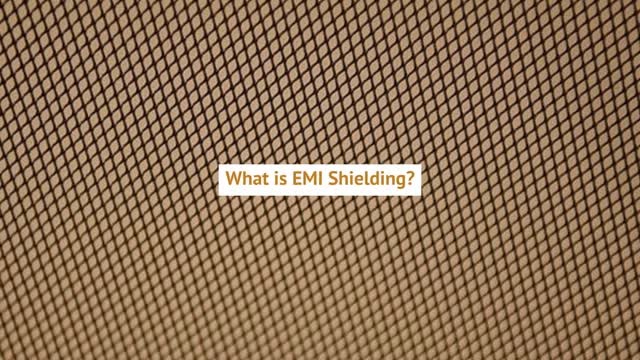CThru Metals is a leader in the expanded metal foil industry, serving clients in the aerospace, filtration, renewable energy, automotive, and other markets. The applications of expanded metals in these sectors are highly diverse, so our team is experienced in providing all manner of specialized metals with unique specifications. One of the core applications of expanded metal foils is electromagnetic interference (EMI) shielding.
This blog will explore what EMI shielding is, the industries that use EMI shielding, and more.
What Is EMI Shielding?
EMI shielding refers to a type of protection against electromagnetic waves. All electronic devices emit some amount of electromagnetic energy, which may cause devices to interfere with each other if they are not properly safeguarded against these waves. The interference can result in mixed signals, static, and device malfunction.
EMI shielding is typically a conductive piece of metal affixed around the electronic components that give off electromagnetic signals. This form of shielding is required for devices to have electromagnetic compatibility (EMC), which means they operate efficiently and legally.
The Importance of EMI Shielding
The modern age is defined by electronic technology. From televisions to lighting to cell phones, all of them can potentially be affected by electromagnetic interference unless they are properly shielded. Increased data processing and communication demands represent additional sources of electromagnetic noise pollution. Even solar flares and lightning strikes can cause EMI disturbances in electrical distribution and transmission systems.
Without EMI shielding, we wouldn’t be able to take advantage of new electronic innovations because they would be inconvenient or even hazardous to use. EMI shielding blocks external waves from disrupting a device’s internal parts while preventing those internal components from disrupting other devices. Shielding protects devices in contact with one another (conducted EMI), those not in direct contact but in close proximity (magnetic and capacitive EMI), and those separated by longer distances (radiated EMI).
Industries That Utilize EMI Shielding
Any industry that utilizes electronics makes use of EMI shielding in some form. Some examples include the following:
- Aerospace
- Automotive
- Consumer Electronics
- Healthcare
- Medical Devices
- Telecommunications and IT
Benefits of EMI Shielding
EMI shielding components are necessary in electronic devices because they minimize or eliminate harmful interference that can cause data loss, errors, device damage, and malfunction. EMI shielding also boosts the device’s performance by protecting it from external noise.
What Materials Act as EMI Shielding?
While any material that blocks EMI can act as shielding, the most effective material used in electronics is metal. Some common metals used in shielding components include the following:
- Copper
- Aluminum
EMI Shielding Products From CThru Metals
EMI shielding is a must for all electronic devices. CThru Metals’ Mesh™ expanded metal foils act as a Faraday cage to effectively block electromagnetic interference, keeping your signals clean and your devices functioning smoothly. Our team can work with you to create a custom configuration based on the EMI shielding needs of your application.
Our ISO 9001:2015 certification means we provide consistent high quality for every customer’s project. Request a quote today to get started on your solution.



